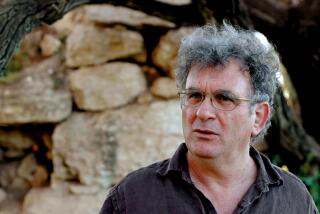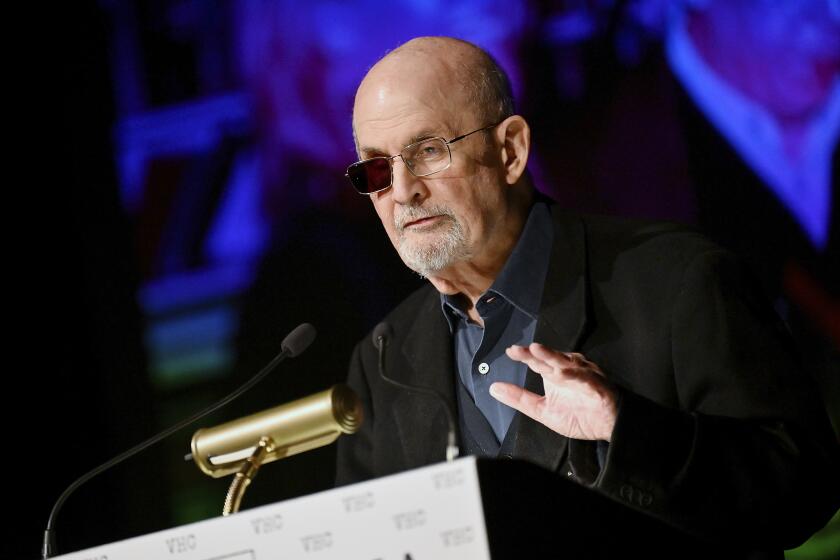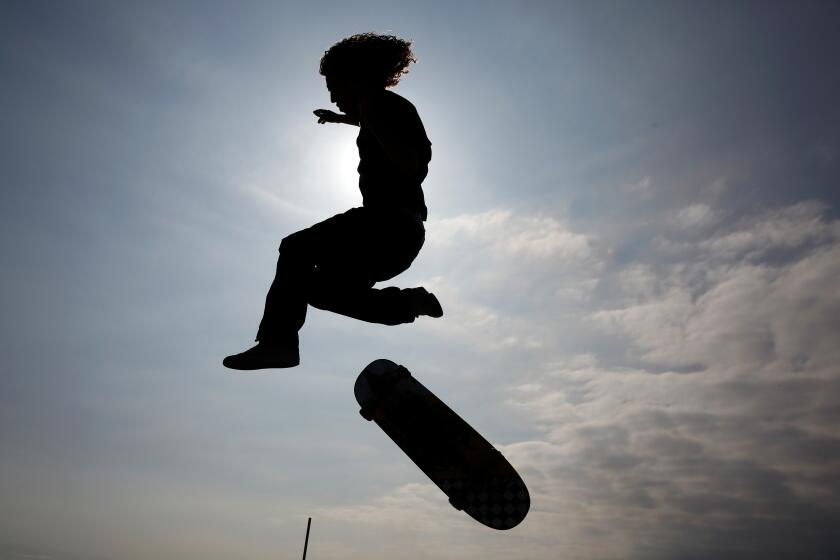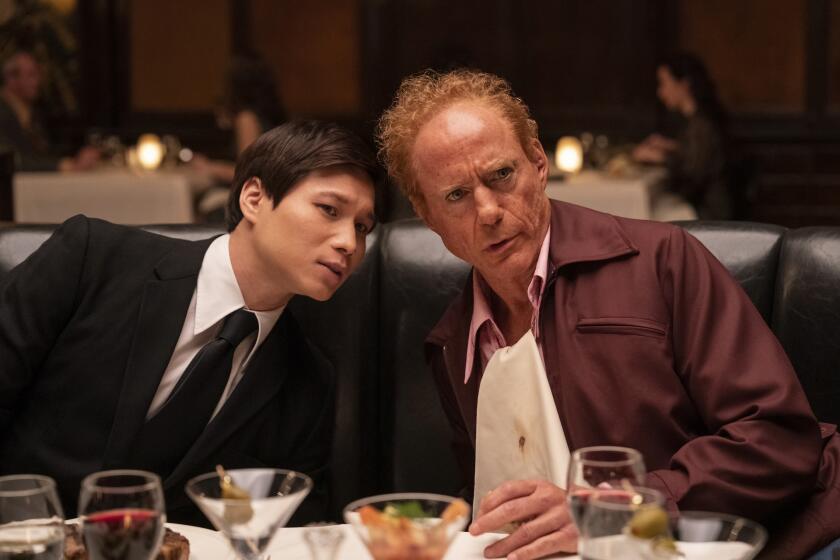Preacher’s daughter
THE problem with religion is its insistence on denying the physical. For a woman like Darcey Steinke, raised in the church but given to deep communion with the physical world, it becomes a lifelong conflict that leaves her lost and alone.
One of several moments of divinity in her memoir, “Easter Everywhere,” comes while she is visiting Graceland. Divorced and living in Mississippi with her toddler daughter, she finds herself in an annex displaying Elvis’ memorabilia and comes face to face with his most famous white jumpsuit: “[T]he embroidered red, white, and blue eagle, the cape, the rhinestone superhero belt all held me in their messianic glow.... They radiated glamour, sadness, faith.”
Glamour, sadness and faith are the trinity of Steinke’s childhood. The daughter of a Lutheran minister and a faded beauty queen, she spends her youth navigating between her parents’ opposing tenets -- one being concerned with the spirit, the other with the flesh.
Steinke’s father, the latest in a long family line of Lutheran ministers, tends to the spirits of coal miners and carnival barkers, the criminally insane and hopelessly lost. He allows his Samaritan zeal to keep his family balanced on the brink of poverty, continually uprooting them for ever more diminished circumstances. She worships her father, a distant, potent figure in her young life. “Everything I’d heard about God was true of my father,” Steinke writes. “He was both loving and aloof. He asked people ... to do impossible, idiotic things, like packing up everything and driving into the wilderness.”
Meanwhile, Steinke’s mother, New York’s erstwhile Miss Albany, is distracted by manic depression and her regret and longing for the things she might have had, had she not married and had children. “Glamour was her religion and, though its elusive precepts had let her down again and again, she clung to its promise.” For her young daughter, an awkward, stammering child, the oppositional pull between the spirit and the flesh is acute, as is her loneliness. “I wanted a secure bond, I wanted to be joined for sure and forever to anything,” she writes.
She finds that connection in a little windup monkey she steals from her father’s office and covets in the way she herself longs to be wanted. “He was like a little God, but one I had to take care of, and this made him precious.”
As a child, Steinke apes her father’s ministrations as a way to bridge her solitude. “I was deacon of the woods.... Here I baptized the neighborhood cats, pressing my fingers up to the soft fur just above their eyes.... [T]he cats made eye contact as if they felt the tiny charge that passed between us.” In lieu of a genuine emotional connection with her parents, she constantly tries to forge links between the physical and spiritual worlds. “I married the jungle gym to the swing set and the toaster to the blender. I made marriages that would better both parties, darkness to Popsicles and bath time to cotton candy.” But the sad lessons of her family drain her of faith. “The proximity of so much suffering made me start to suspect that God, in fact, was not infused into everything. God was hiding from me.” Not only can she not see God but also feels unseen by him. She eventually gives up on God and her parents. “Divinity was changing forms, the old variety rushing out of the world with an almost physical sensation, like water draining out of a bathtub.”
Thus drained, Steinke spends her early adulthood wandering aimlessly through a series of barely felt romantic liaisons, winding up married to Michael, a man-child whose primary religion seems to be himself. He forces a postpartum Steinke, who is beginning to fall apart under the chronic depression she has inherited from her mother, to confront herself in a full-length mirror. “[E]ven I could see that without God I was just a meat puppet, a material object no different than a chair or a couch.”
The birth of Steinke’s daughter is not a pastel-hued answer to her life of longing but, rather, acts as a spiritual bunker buster, blowing apart her life and forcing her back to her quest for God. Thus her revelation in front of Elvis’ jumpsuit. To connect spiritually, she must reconcile with the church and her family, which are inextricably bound.
Steinke has explored these themes in prior books, most notably in her last novel, “Milk,” about lost souls, among them Mary, a young mother searching for God. “Easter Everywhere” benefits from the author’s fiction-writing background, the characters in her life rendered vividly and events laid out deftly. She drew this atheist reader deep into her devotional tale, seducing with prose that is rich and filling, with images that are startling and deep. They are recognizable to anyone who has yearned to touch things -- she describes her daughter’s passage through the birth canal as “like a lit match makes a hole in paper” and likens her baby’s skin to “a giant rhododendron petal.”
As Steinke navigates between flesh and spirit, always trying to reconcile the two, she creates a wonderful tension: “I’d always assumed that my soul was yet another fleshy organ, less like slimy refrigerator leftovers and more like the elegant angelfish in the dentist’s office fish tank. I thought of things invisible -- air, breath, wind, germs -- but none of these seemed substantial enough to represent a person.” But a white jumpsuit? That makes perfect sense for a woman who longs to be seen, cherished and touched by God.
More to Read
Sign up for our Book Club newsletter
Get the latest news, events and more from the Los Angeles Times Book Club, and help us get L.A. reading and talking.
You may occasionally receive promotional content from the Los Angeles Times.






